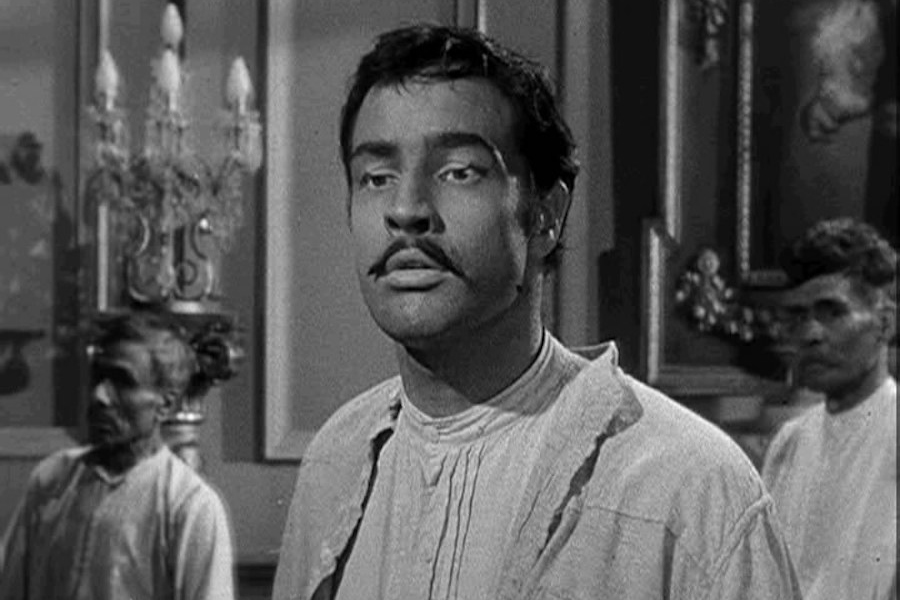
How Hollywood has repeatedly circulated the same stereotypes and clichés
 Movies are brilliant inventions, but because they tend to be depictions of reality, we as spectators also believe that they’re reflections of everyday life and people. For example, in the 1940s and ‘50s, when Hollywood directors first made films about Mexican people, they used stereotypes from different cultures in Mexico, grouped them together and said, ”Okay, this is Mexican culture.”
Movies are brilliant inventions, but because they tend to be depictions of reality, we as spectators also believe that they’re reflections of everyday life and people. For example, in the 1940s and ‘50s, when Hollywood directors first made films about Mexican people, they used stereotypes from different cultures in Mexico, grouped them together and said, ”Okay, this is Mexican culture.”
These stereotypes are reductive and simplify life in ways that are simply not true. For instance, the most classic stereotype of Mexican women in the media today is the role of the maid — that almost every Mexican woman is a maid on television or in real life. Examples can be found all over TV and movies, even in shows like “Family Guy,” in which the character Consuela is a maid with a heavy accent and all she does is clean.
The most prominent stereotypes of Latino/as in the media are the Latin lover, the hot-tempered Mexican female, the gangster, the gardener, the wild savage, the revolutionary, the rural worker and the drug lord.
Nevertheless, the craziest part is not why we have these stereotypes, but why they keep getting circulated with such popularity. Stereotypes generalize people, and the worst part is that they’re believable. Stereotypes repeat the same nonsense over and over again in harmful ways — and stereotypes about Mexicans ignore the rich and vast diversity that Mexico and its culture have to offer. In the United States, that diversity is not recognized. We are seen as a homogeneous people with the same “crazy” tendencies.
One popular example of someone who perpetuates these stereotypes is Donald Trump. Trump has gone on to say that Mexicans are, among other offensive terms, “drug dealers, criminals [and] rapists.” These are stereotypes that are all too present in the media.
And even when television does broadcast Mexican actors, it has been a tradition to cast fair-skinned Latino/as in lead roles. More often than not, they’re light-skinned, conventionally beautiful and have traces of European descent. Yet that is not always the case.
This can be seen in the movie “Viva Zapata” (1952), in which Marlon Brando did “brown-face” and played the revolutionary leader Emiliano Zapata. A white person played the lead role of a key figure in Mexican history — major uproar would occur if this movie aired in the present day. Albeit the film was made a while ago and things have “changed,” but we still see identical stereotypes from the 1950s in place today.
Danny Trejo, aka “Machete,” is an almost-perfect example. In the vast majority of movies he has been in, he plays the role of a crazy, bloodthirsty killer or a bad guy who seduces women and gets what he wants through violence. He’s a badass breaking the law in practically every role.
Above all, Hollywood has created stereotypes of Mexican-American communities as a whole. Urban movies depict poor Mexican neighborhoods riddled with crime where the youth are in gangs, struggle in school and always get in trouble with the law.
Other movies make statements about Mexican culture, such as depicting Latino/as as having huge, vehemently Catholic families. Moreover, many films depict Mexicans as “illegals” who only speak Spanish.
Why are there so many negative stereotypes in the media about Mexican-Americans? There are hardly any positive stereotypes of Mexicans in the media. The only ones that come to mind are that Mexican food is really good and that we love to dance, party and drink tequila.
Times are changing, but change has been slow. This past year, Eugenio Derbez and Salma Hayek starred in the film “How to be a Latin Lover.” The Latin lover stereotype has been distributed for years and years, while the circulation of positive stereotypes has been stagnant or nonexistent throughout history.
My biggest concern is that negative stereotypes about Mexican people are constantly spread, while progressive and affirmative stereotypes continue to be left in the dark. But my hope is that people are critical of the things they notice in shows and films because film distorts reality in ways that seem real but often fails to show the truth. More importantly, I want people to be aware of the negative effects that Mexican stereotypes have: they ignore diversity and show a lack of respect toward our culture.
Written by: Alejandro Lara — amlara@ucdavis.edu
Disclaimer: The views and opinions expressed by individual columnists belong to the columnists alone and do not necessarily indicate the views and opinions held by The California Aggie.










